 Academy Award winner Olympia Dukakis has long been a favorite among gay audiences. Not only has she starred in films and miniseries we love (Steel Magnolias, Moonstruck, Tales of the City), she’s stood up to religious organizations on our behalf, and she’s not afraid to butch it up onscreen. On top of that, she’s a no-nonsense woman who says it like she sees it.
Academy Award winner Olympia Dukakis has long been a favorite among gay audiences. Not only has she starred in films and miniseries we love (Steel Magnolias, Moonstruck, Tales of the City), she’s stood up to religious organizations on our behalf, and she’s not afraid to butch it up onscreen. On top of that, she’s a no-nonsense woman who says it like she sees it.
In Big Driver, she plays Doreen, a character in a series of mystery books who’s very much alive in the mind of the writer, played by Maria Bello. Based on a Stephen King short story, the movie takes a very dark turn when the writer is brutally assaulted by a serial killer and decides to take matters into her own hands, with much encouragement and (sometimes awkward) comic relief from Doreen.
Queerty spoke to Dukakis about the film, her first exposure to the gay community, women in Hollywood, and her transgender awakening.
Queerty: Big Driver is a film about courage, determination, and eye-for-an-eye justice. What drew you to the project?
How about we take this to the next level?
Our newsletter is like a refreshing cocktail (or mocktail) of LGBTQ+ entertainment and pop culture, served up with a side of eye-candy.
Olympia Dukakis: I thought there was a lot of humor in it. At least there was in my character. And I’ve always liked Maria Bello’s work and admired her.
The story has some pretty disturbing elements. At any point were you concerned that Doreen’s humor might be deemed inappropriate?
Yeah, that’s what I liked about it. I like that it kind of walks the line.
Do you ultimately see it as an uplifting story or a tragic one?
I see it as a story with contradictions. That’s what’s interesting about it. Because you can look at this and think, Why doesn’t she go to the police? There are different ways of handling this. And then on the other hand you can think, At a certain point, people want the satisfaction of this. They’re sick of being pushed around. Especially women. It has those contradictions, and I tend to like things with contradictions instead of things that get resolved neatly.
You’ve long been admired by the gay community, perhaps because you often play strong female characters like Clairee in Steel Magnolias. Why do you think that film had such an impact on gay men?
You know how many people have asked me that question?
Too many?
Since we did that in the late ’80s, it’s gotta be thirty people or so. I wish I had an answer to it.
 I suspect a lot of gay men want insert themselves into that amazing group of women and join the party. Was that all acting, or was there a genuine chemistry and camaraderie among all of you?
I suspect a lot of gay men want insert themselves into that amazing group of women and join the party. Was that all acting, or was there a genuine chemistry and camaraderie among all of you?
There were times when it was acting and there were times when the camaraderie was really present. You know, you look at these women at the beginning and they’re all involved in their hair and keeping up their houses, and you don’t realize until the movie goes on that they’re capable of profound friendship. And really being there for each other — and sometimes saying the hard things to each other. That may be what’s also true in the gay community. Any group of people that is judged and defined, somehow showing its own colors makes those people in the community feel acknowledged and appreciated.
 In Cloudburst, you played a feisty, truck-driving lesbian who loves to shock people by throwing around the “c” word. Did you base your character on anyone in particular?
In Cloudburst, you played a feisty, truck-driving lesbian who loves to shock people by throwing around the “c” word. Did you base your character on anyone in particular?
No, it was in Thom Fitzgerald’s writing. I didn’t base it on anything. I think if you ask him this question, he’ll say he based it on me. I don’t know whether that’s a compliment or an insult, but there you go. [Laughs]
Last year, you were very public in your response to the orthodox church of Cyprus lashing out against gay pride. Is homophobia as big a problem in Greek culture as it is in American culture?
I’m not someone to speak with authority in terms of that kind of defining and interpretation. I just know that I found the response of the Greek church on Cyprus really lacking in humanity, really lacking in an understanding of what gay people have to confront. The church is, I think, upset with me. And I know there are people here in this country that don’t like that I did that.
Does that bother you? Or do you think it’s more important to speak out?
I don’t go out of my way to insult or diminish people or organizations. But I do feel that when people speak that way — the way the church behaved — it’s important to say something. I have no desire to malign the church but I thought it was important for people to know that there are others in the Greek community that don’t share that point of view.
 Of all the roles you’ve played, you’ve said that Anna Madrigal from Tales of the City is among your favorites. What is it about her that meant so much to you?
Of all the roles you’ve played, you’ve said that Anna Madrigal from Tales of the City is among your favorites. What is it about her that meant so much to you?
She fought so hard and paid such a price to be authentic. She struggled for that and she arrived. We all strive to do that. And sometimes in doing that there are prices to pay. I had a very interesting conversation at the time. I told the producers that I’d read about these [gender reassignment] operations. There were only two biographies out at the time. But I said, “I’ve got to talk to somebody who’s been through this experience. I feel so distanced from it.” So, while we were in San Francisco, they introduced me to a woman who had been a man and who was a gender therapist — she was actually a therapist counseling people with these issues. She came to my apartment. She was, like, six-three with enormous hands, a soft voice, and a lovely figure. She walked in, we sat down to have coffee, and I said, “Tell me, what was it that was so important to you” — this is how naïve and uninformed I was — “that made it possible for you to go through this transition which is really physically difficult and painful?” And she said to me, “All my life I yearned for the friendship of women.” I don’t know what the hell I expected but I did not expect that. She wanted to connect with women because that’s what she was. She wanted to be true to who she was, and she had been denied that intimacy of friendship. I just started to cry. She put my head in such a different space, a place that I understood and knew as a human being. I didn’t have to go through what she was going through. She helped me see that. And it made doing that film so personal.
Do you recall having a similar awakening in regards to gay and lesbian people?
I had no experience with gay or lesbian people — at least consciously or with any awareness — when I was in college. I graduated and was a physical therapist and worked with polio patients for a couple of years. I saved my money, went back to school, and almost the first friend I made at graduate school was a gay man. Bernie. He was my buddy. He was so smart. He was a Fulbright Scholar and so talented as a director. In New York, we were very close. I got involved and started to know the gay community at a time when things were quite different. After Stonewall he left New York. Said he couldn’t take it anymore. He went someplace with his partner and ran a theater. He eventually died of AIDS. He was smart as hell and very helpful to me. And very eager to be part of my success. So, that was it for me.
There’s always talk about how Hollywood doesn’t provide good roles for women after a certain age. Do you agree with that sentiment?
Listen, Hollywood is a business. They’re not in the business of making anybody’s life comfortable. They’re not in the business of promoting the arts. At least I would say ninety percent of them. So, if it’s a business, they’ve got to look at where they think they’re gonna make the buck. Who goes to the movies the most in our country? Do you know?
Young men?
Young men, white, between, like, 16 and 34. Something like that. They go to the movies. And they see the movies several times. And they not only go to the movie theater, they’ll buy the DVD. These are the people that are going to bring in the money. And so they’re looking to make their product interesting.
Big Driver is definitely interesting. Is there anything else you’d like to say about it?
I had a good time shooting it and I enjoyed meeting Maria Bello. I think she’s fabulous.
Big Driver is now available on DVD. Watch the trailer below.








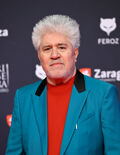
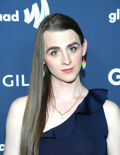
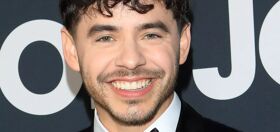

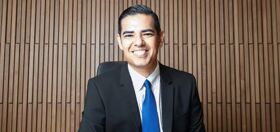


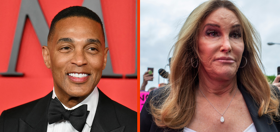
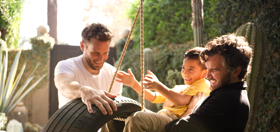
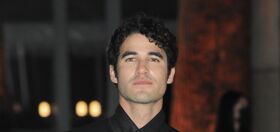
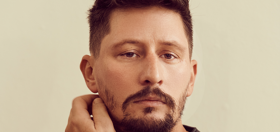

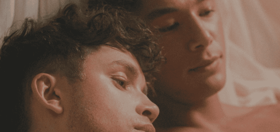
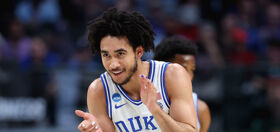
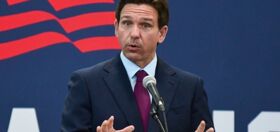
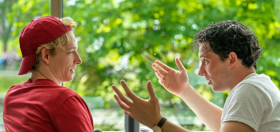

dhmonarch89
she also played the accepting mother of a trans gendered lesbian daughter in Jeffrey- great/funny scene.
Desert Boy
I loved her in Moonstruck. A perfect performance.
man5996853
What a smart and well-spoken woman. The more I know about her, the more I love her.
tricky ricky
a man and a girl! I finally get it!